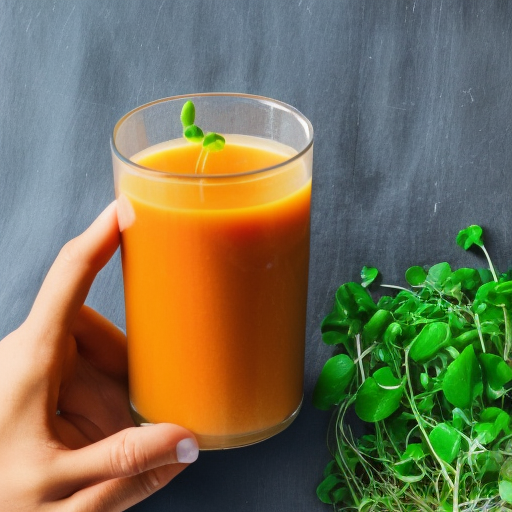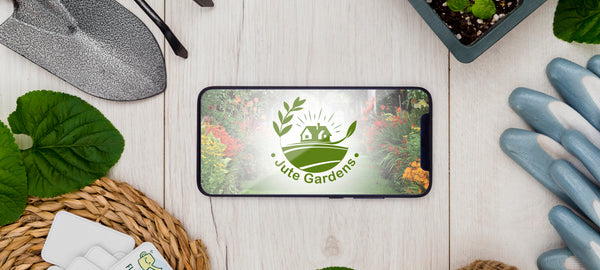
What Are The Best Microgreens For Juicing?
Microgreens are young vegetable greens that are harvested just after the sprout stage, usually when they are 1-3 inches tall. They are packed with nutrients, vitamins, minerals, and antioxidants, making them an excellent addition to a healthy diet.
Best Microgreens for Juicing
Juicing is a great way to consume microgreens, as it allows you to extract nutrient-rich juice from the greens and enjoy their benefits in a concentrated form. Examples include wheatgrass, sprouted lentils, alfalfa sprouts, broccoli sprouts, radish sprouts, pea sprouts, clover sprouts, and sunflower sprouts.
In this article, we will discuss some of the best microgreens for juicing and the benefits they offer.

Wheatgrass
Wheatgrass is a type of grass that is commonly consumed as a juice or added to smoothies. It is high in chlorophyll, vitamins A, C, and E, and minerals such as iron, magnesium, and calcium. Wheatgrass is also a good source of antioxidants and has anti-inflammatory properties. When juiced, wheatgrass has a strong, slightly bitter flavor that can be mixed with other ingredients such as fruits or vegetables to make it more palatable.
Sprouted Lentils
Sprouted lentils are a type of microgreen that is high in protein and fiber. They are also rich in vitamins B and C, and minerals such as iron, calcium, and magnesium. Lentil sprouts are easy to grow at home, and they have a mild, slightly nutty flavor that is perfect for juicing. When juiced, they provide a thick and creamy consistency that is similar to almond milk.
Alfalfa Sprouts
Alfalfa sprouts are a type of microgreen that is high in vitamins C, K, and B, as well as minerals such as iron, magnesium, and potassium. They have a mild, slightly sweet flavor that makes them a great addition to any juice. Alfalfa sprouts are also rich in antioxidants and have anti-inflammatory properties.
Broccoli Sprouts
Broccoli sprouts are a type of microgreen that is high in vitamins C and K, as well as minerals such as calcium and potassium. They are also a good source of antioxidants and have anti-inflammatory properties. When juiced, broccoli sprouts have a slightly bitter flavor that is similar to the flavor of mature broccoli. However, they can be mixed with sweeter ingredients such as fruits or sweet vegetables to make the juice more palatable.
Radish Sprouts
Radish sprouts are a type of microgreen that is high in vitamins C and K, as well as minerals such as calcium and potassium. They have a strong, spicy flavor that is perfect for adding a bit of zing to any juice. Radish sprouts are also a good source of antioxidants and have anti-inflammatory properties.
Pea Sprouts
Pea sprouts are a type of microgreen that is high in vitamins C and A, as well as minerals such as iron and calcium. They have a sweet, slightly nutty flavor that is perfect for juicing. Pea sprouts are also a good source of antioxidants and have anti-inflammatory properties. When juiced, pea sprouts provide a thick, creamy consistency that is similar to almond milk.
Clover Sprouts
Clover sprouts are a type of microgreen that is high in vitamins A and C, as well as minerals such as calcium and iron. They have a mild, slightly sweet flavor that is perfect for juicing. Clover sprouts are also a good source of antioxidants and have anti-inflammatory properties.
Sunflower Sprouts
Sunflower sprouts are a type of microgreen that is high in vitamins A, C, and E, as well as minerals such as magnesium and potassium. They have a nutty, slightly sweet flavor that is perfect for juicing. Sunflower sprouts are also a good source of antioxidants and have anti-inflammatory properties. When juiced, sunflower sprouts provide a thick, creamy consistency that makes them a great base for smoothies.
In addition to these microgreens, many other greens can be juiced, such as kale, spinach, and chard. However, it is important to note that some greens can have a strong, bitter flavor when juiced, so it may be necessary to mix them with other ingredients to make the juice more palatable.
When it comes to juicing microgreens, it is important to use high-quality, fresh greens to ensure maximum nutrient content. It is also important to store microgreens properly to prevent spoilage. Microgreens can be stored in the refrigerator for up to a week, but it is best to consume them as soon as possible to ensure that they are at their peak of freshness and nutrient content.
Recipes
Wheatgrass and Apple Juice
Ingredients:
- 1 cup of wheatgrass
- 2 medium apples
- 1 lemon
- 1 inch of fresh ginger
- 1/2 cup of water
Instructions:
- Wash and chop the wheatgrass, apples, lemon, and ginger.
- Place all ingredients in a juicer and process until smooth.
- Strain the juice to remove any pulp and seeds.
- Serve immediately and enjoy the fresh, slightly bitter taste of wheatgrass combined with the sweetness of apples and the tanginess of lemon.
Sprouted Lentil and Carrot Juice
Ingredients:
- 1 cup of sprouted lentils
- 2 large carrots
- 1 medium beet
- 1/2 lemon
- 1/2 cup of water
Instructions:
- Wash and chop the sprouted lentils, carrots, beet, and lemon.
- Place all ingredients in a juicer and process until smooth.
- Strain the juice to remove any pulp and seeds.
- Serve immediately and enjoy the creamy, nutty taste of sprouted lentils combined with the sweetness of carrots and the earthiness of beet.
Broccoli Sprouts and Kale Juice
Ingredients:
- 1 cup of broccoli sprouts
- 2 large kale leaves
- 2 medium apples
- 1/2 lemon
- 1/2 cup of water
Instructions:
- Wash and chop the broccoli sprouts, kale, apples, and lemon.
- Place all ingredients in a juicer and process until smooth.
- Strain the juice to remove any pulp and seeds.
- Serve immediately and enjoy the slightly bitter taste of broccoli sprouts combined with the sweetness of apples and the tanginess of lemon.
Radish Sprout and Cucumber Juice
Ingredients:
- 1 cup of radish sprouts
- 2 medium cucumbers
- 2 medium apples
- 1/2 lemon
- 1/2 cup of water
Instructions:
- Wash and chop the radish sprouts, cucumbers, apples, and lemons.
- Place all ingredients in a juicer and process until smooth.
- Strain the juice to remove any pulp and seeds.
- Serve immediately and enjoy the spicy taste of radish sprouts combined with the sweetness of apples and the tanginess of lemon.
Sunflower Sprouts and Pineapple Juice
Ingredients:
- 1 cup of sunflower sprouts
- 2 cups of fresh pineapple
- 1 medium apple
- 1/2 lemon
- 1/2 cup of water
Instructions:
- Wash and chop the sunflower sprouts, pineapple, apple, and lemon.
- Place all ingredients in a juicer and process until smooth.
- Strain the juice to remove any pulp and seeds.
- Serve immediately and enjoy the nutty taste of sunflower sprouts combined with the sweetness of pineapple and the tanginess of lemon.
These juices are a great way to incorporate microgreens into your diet and enjoy their many health benefits. Whether you are looking for a nutrient-packed drink or a flavorful addition to your smoothies, these juices are sure to satisfy you.
Microgreens are a great addition to any juicing routine due to their high nutrient content and variety of flavors. Some of the best microgreens for juicing include wheatgrass, sprouted lentils, alfalfa sprouts, broccoli sprouts, radish sprouts, pea sprouts, clover sprouts, and sunflower sprouts. Whether you are looking for a nutrient-packed drink or a flavorful addition to your smoothies, microgreens are a great option to consider. By incorporating microgreens into your diet, you can enjoy the benefits of their nutrient-rich juice and support overall health and wellness.
Jute Gardens offers three different varieties of DIY microgreen kits that are easy to use and eco-friendly. Click here to find more recipes.

